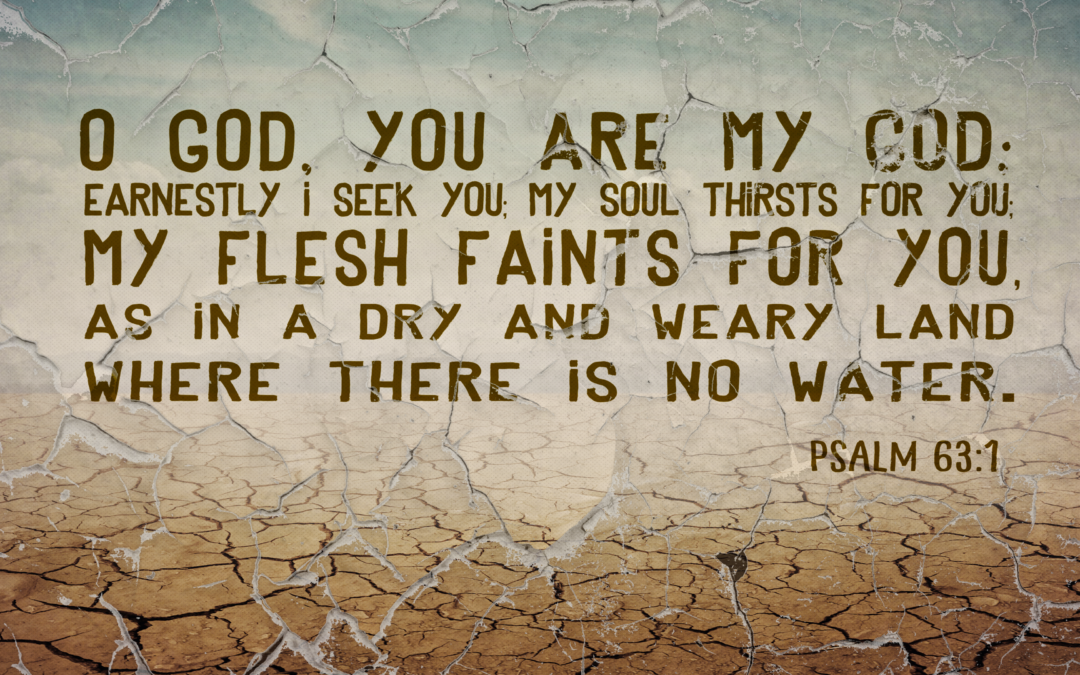It has been far too long since I last added a post to the Blog. But it seems appropriate at the outset of our summer “series” to reflect on what we learned yesterday and look ahead to what we hope to accomplish through our summer in the Psalms. Given the reality of so many people coming and going over the course of a summer (including us), pastors like to go to the Psalms over the summer because they can be standalone messages, not necessarily linked together. So if you miss a message, you are not lost when you return from holidays. Summer is also a great time to get outdoors and enjoy God’s creation and his presence in it. The Psalms can often call us back to the great, loving, and creative God to whom we belong (HC LD 1; cf. BC Art. 2). However, as we well know, not all of the Psalms are about God’s providence, care, creativity, and love.
Many of the Psalms (in fact, more than half of them) are Psalms of lament, expressing feelings of abandonment by God, frustration, anger, or dissatisfaction with the way things are in the world. The words used in these Psalms we would often be uncomfortable using in our conversations with one another, let alone with God! Yet, these Psalms are included in the ancient “hymnal” of the people of God and were used in public worship services! Can you imagine singing the below stanza from Psalm 137 in one of our Sunday morning worship services?
Remember, LORD, what the Edomites did
on the day Jerusalem fell.
“Tear it down,” they cried,
“tear it down to its foundations!”
Daughter Babylon, doomed to destruction,
happy is the one who repays you
according to what you have done to us.
Happy is the one who seizes your infants
and dashes them against the rocks.The New International Version (Grand Rapids, MI: Zondervan, 2011), Ps 137:7–9.
These vengeful words are not uncommon in the Psalter, and go against our ‘evolved’ Western sensibilities. So why, then, would God include these in the canon of Scripture? Let me answer that question with another question: would you rather someone you love tell you exactly how they feel, or only what you want to hear? God knows our hearts, and we know full well that he hates hypocrisy (Ps. 50:16-21; Isa 29:13; Mt. 15:7-9; 23:2-4; Mk. 12:38-40; Lk. 12:1 et. al.). Why offer him empty praise when we are angry? Why put up a front when we are being eaten away by depression on the inside? God loves us, difficulties, warts and all. Why hide from him what we really feel since he knows what we feel anyway? The Psalms are full of that raw, unbridled honesty that should characterize any loving, trusting relationship.
This does not, however, sanctify the breadth of thoughts and emotions we may experience in this life. Just because the Psalmist desires to have the children of his enemies killed in a gruesome way, that does not mean that God approves of or endorses such actions. However, unless we are willing to be truly honest with God and ourselves about how we feel, there is little hope for true healing at the deepest level of our being. We will continue to “put on a happy face” while we are dying on the inside. If we try to deny, suppress, or hide these feelings, then we are saying to God “I don’t need you, I can figure this out on my own”. This is pride. If we refuse to acknowledge our own brokenness and sinfulness, then we refuse to acknowledge our need for a saviour and redeemer.
Yesterday morning, we reflected on Psalm 63. I entitled the message No Other Need because in this Psalm, the Psalmist (David) acknowledges that his one and only true need is for God. As David is hiding and on the run in the desert of Judea, fearing for his life and suffering from physical hunger and thirst, he says to God: “I thirst for you, my whole being longs for you, in a dry and parched land where there is no water” (v. 1 – emphasis added), and goes on to say “your love is better than life” (v. 3). In such a dire situation, David recognizes that his one and only true need is God himself. To be in relationship with God is better than even life itself! Even though David may not be experiencing God presence in his hour of need, he is able to recall God’s past power, glory, and faithfulness (v. 2-3, 7) and know with confidence that God will deliver him in his current situation (v. 9-10).
Although our lives may not be in physical danger like David’s was at the time of writing this Psalm, there are many ways in which we can connect with the feelings David is experiencing. There are, and can be, many things threatening or spiritual lives today. Though Christ has the ultimate victory and is able to preserve against the onslaught of evil at the last day, we experience various “Saul’s” coming after us, seeking to take our hearts and desires away from our one true need: God. For some of us, the “Saul” threatening us may be fear, sin, relationships, anxiety, or depression. For others, it may be something else like pride or affluence. The first step for all of us is to acknowledge our need for God, as David does in this Psalm. the second step is acknowledging (and proclaiming) that God is, in fact, all that we need. When we come to this place, we can see that we can truly trust in God no matter what circumstances we may be facing. We can do this because we have experienced God’s ultimate act of power and faithfulness: the cross of Christ. Whenever we may be tempted to think that God has abandoned us, that he doesn’t love us or care for us, or that we have travelled too far from him, we need to be reminded the great lengths to which he went to restore the broken relationship between us (Rom. 8:31-39). David could recall an experience of God’s presence in the sanctuary (v. 2), but we can recall an experience of God’s presence in us through the Holy Spirit when our hearts responded in faith to him. What a wonderful gift and blessing!
So go ahead: pour your heart out to God. Use the Psalms as a starting point to speak the words that perhaps you could not find yourself. Lean on the Psalms as your prayer book and allow God to use them to shape you and shape your prayer life this summer.
The Challenge: Read the Psalms One at a Time
The challenge I issued yesterday and repeat here is to read the Psalms – one at a time, one day at a time – for at least the next 150 days. Don’t get discouraged if you miss a day. Just read it the next day. If psalm 119 is too long to read in a day, then read it one section at a time. Try different translations (maybe a more colloquial one like the NLT, CEB, or the Message). My hope, if you take up this challenge, is that God will use the Psalms to reshape you and reshape your prayer life, as it has already begun to reshape mine.
Blessings and have a great week!
Pastor Gareth


Recent Comments